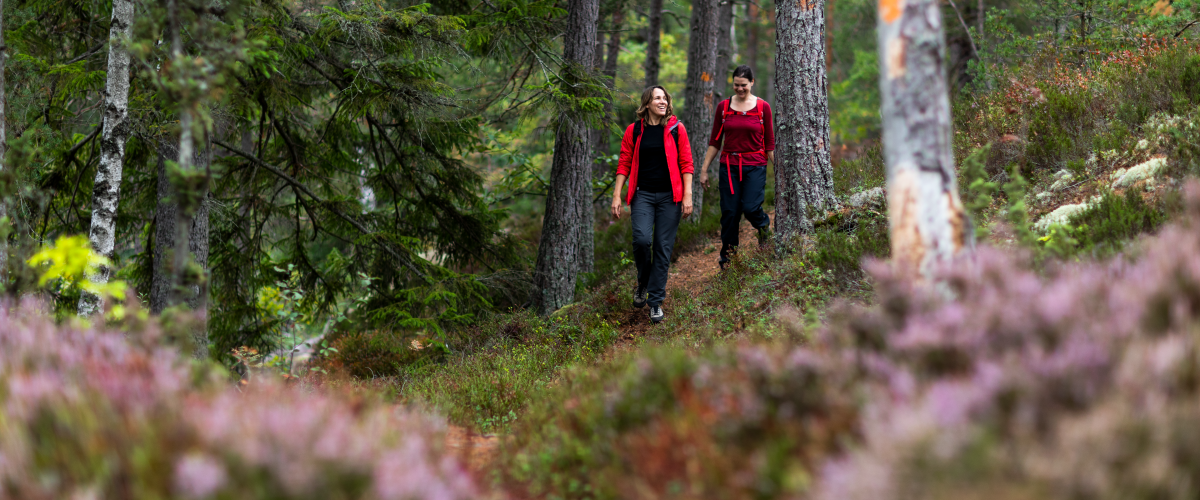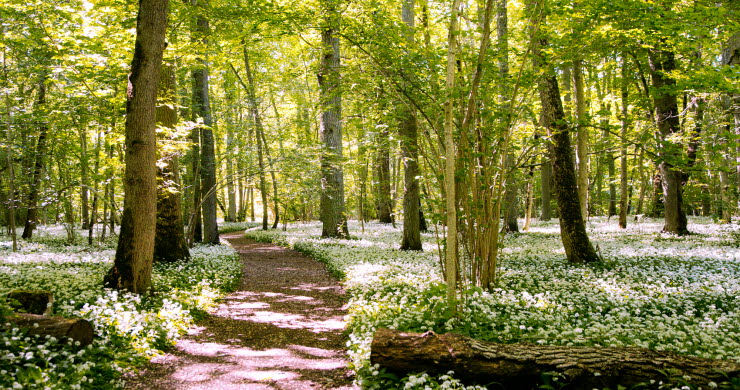The Swedish Right of Public Access and its principles
Thanks to the Right of Public Access we can spend time outdoors in Sweden more or less anywhere we want. It’s a unique right, but it also means that we have to respect certain principles. The main one is “Do not disturb – do not destroy.”
What does the Right of Public Access mean?
The Right of Public Access in Sweden gives people the right to roam and do activities in the wild, such as hiking, picking berries and mushrooms, fishing and camping, on the condition that we respect nature and don’t disturb landowners or animals.
The Right of Public Access is not a law, but it’s prescribed by laws. Everyone spending time in Swedish nature has a shared responsibility to comply with the rights and obligations that are embodied in the Right of Public Access.
Right of Public Access principles:
What you are allowed to do according to the Right of Public Access
According to the Right of Public Access you have the right to, among other things:
- Hike, cycle, paddle and ski on land that is not enclosed and not cultivated, even if it is owned by someone else.
- Pick wild berries, mushrooms and flowers, and fish in lakes and waterways, provided that you have a valid fishing licence.
- Go wild camping for a few nights.
What you are NOT allowed to do according to the Right of public access
According to the Right of Public Access you are not allowed to:
- Enter someone else’s enclosed land or garden. This applies whether you are walking, cycling or skiing.
- Camp near dwellings or moor your boat and disembark on a beach that is part of the grounds of a house.
- Harm animals, trees or pick protected plant species.
Where does the Right of Public Access NOT apply?
The Right of Public Access applies in principle to the whole of Sweden but there are certain exceptions:
- Residential land. There is no Right of Public Access to private housing estates and summer houses.
- Enclosed areas. Areas that are enclosed or clearly demarcated, for instance private gardens or agricultural land, are not included in the Right of Public Access.
- National parks, nature reserves and protected areas. In national parks, some nature reserves and protected areas there can be specific rules limiting activities, to protect particularly sensitive environments and species.
- Golf courses. The Right of Public Access does not apply to golf courses.
- Prohibited areas. There can be areas where specific prohibitions apply, such as military sites, mines, factories or other areas that are closed to the public for safety reasons.
Protected areas of countryside
In protected areas, for example national parks and nature reserves, there are particular provisions to conserve nature and culture. The restrictions apply to landowners as well as visitors and are site specific. The relevant restrictions are usually posted on information boards at the entrance to a protected area.
Read more: the Right of Public Access in protected areas
The Right of Public Access – List of guidelines for different activities
Hiking and running
You can go walking and running almost everywhere outdoors, but there are some exceptions.
- You musn’t enter the grounds of someone else’s property or get close enough to the building to disturb the people living in it.
- You are not allowed in fields or plantations where crops are growing.
- The Right of Public access doesn’t apply to golf courses.
Cycling
You can both cycle off road and on private roads but be aware of the following.
- You are not allowed to cycle over someone else’s property, or planted areas.
- Avoid cycling on paths with soft surfaces in spring and autumn, when the ground is wet.
- Avoid cycling over rock surfaces, forest floors with ground lichen and other fragile areas such as meadows.
Paddling, swimming and boating
The Right of Public Access on land and in water.
- A shoreline protection code applies to coastal areas, all lakes and waterways in Sweden.
- You can disembark, swim, cast anchor and moor temporarily by shores that are not part of someone’s garden or are bird protected areas.
- The landowner give permission to moor for a longer period.
Picking flowers, berries and mushrooms
You are welcome to pick wild flowers, berries and mushrooms, but not if they are protected species.
- You must not cut down or damage in any other way growing trees or larger bushes.
- Certain plant species are protected and you are not allowed to pick them at all. Check what applies for each respective plant.
Wild camping
You are allowed to wild camp for a few nights, but make sure you don’t disturb the landowner or cause any damage to the surroundings.
- You are not allowed to wild camp near dwellings or on pastures in use.
- Certain municipalities have specific regulations about camping in parks, sports grounds and recreation areas. It is your responsibility to check what applies.
Lighting fires
Lighting campfires is a cosy activity if it’s done in the correct way.
- Choose a place for the fire where there is no risk of it spreading or damaging the ground. You are not allowed to light fires directly on bare rocks.
- The lighting of fires can be prohibited during dry weather. Keep an eye on the Länsstyrelsen Västra Götaland (County Administrative Board) or Räddningstjänsten Väst (Fire Service) websites.
Dogs outdoors
Bear this in mind when you are outdoors with your dog.
- Supervise your dog all year round to make sure it does not chase wild or farm animals.
- From 1 March to 20 August you must keep your dog on a lead to protect breeding mammals and birds.
- Dogs must be kept on leads at all times in Sweden’s National Parks.
Fishing
Fishing isn’t covered by the Right of Public Access (neither is hunting).
- You can fish freely with a rod along the sea coast, but in most lakes you will need to buy a fishing licence from the person with fishing rights. You are responsible for finding out what applies.
- Recreational fishers are not allowed to sell their catch.
Horse riding
Horse riders need to show extra consideration when riding on others’ land.
- You are not allowed to ride through people’s gardens or in areas where the ground is at risk of being damaged.
- You are allowed to ride on private roads as long as the road does not become damaged.
- Horse riding may be prohibited on some marked exercise tracks and skiing tracks.
Skiing
More or less the same rules as hiking apply to skiing, with some additions.
- You are allowed to walk or ski over fields that are frozen hard or covered with snow.
- Golf courses can also suffer damage during winter so cordoned off areas must be respected.
- Charges for skiing can be applicable in some places.
Climbing
Some parts of the climb require you to show extra consideration towards animals and the environment.
- Many outdoor rock climbing spots are home to vulnerable and rare animal and plant species. Make sure you know the best way to protect the environment.
- Avoid ledges and crevices where birds nest in the spring.
You can read more about the Right of Public Access on the Swedish Environmental Protection Agency’s website.





